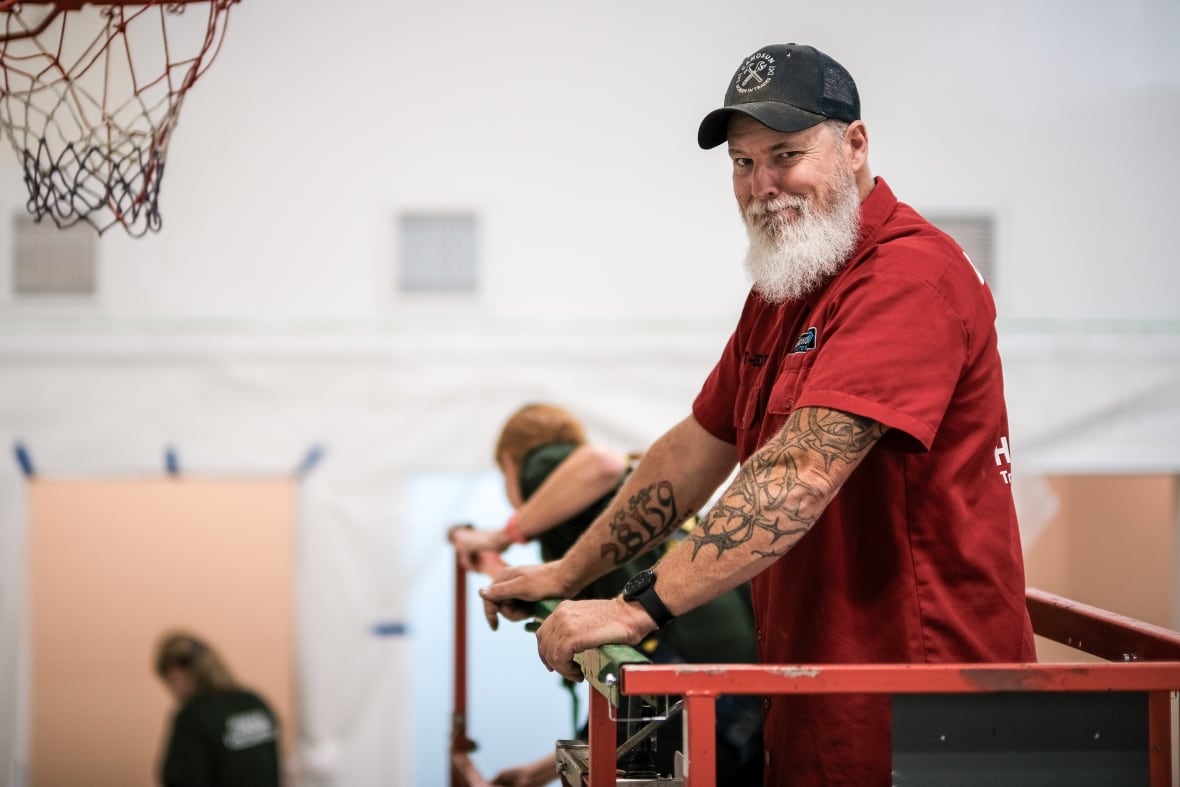[published_date]
When Shawn Underhill worked as an ironworker, it was his job to check the fit-for-duty box for the crew, a standard part of the daily safety paperwork.
“It was a lie,” said Underhill, explaining that he and other members of his crew weren’t always sober. For decades, Underhill struggled with mental health and addiction, the result of cascading personal tragedies, worksite injuries and painkiller prescriptions.
“If I only had someone early on [to] just sit and talk with me … it would have changed things for me,” said Underhill, who’s now settled in Mission, B.C. That’s exactly what he wants to do now for other men and women struggling in the same way he did.
Underhill is one of 12 current and former tradespeople across the province, training to be a peer-support worker for a mental-health initiative, led by the Construction Foundation of B.C. (CFBC), called The Forge. It’s aimed at the skilled trades, an industry which sees higher-than-average rates of health concerns.
On July 31, the CFBC breaks ground on the future headquarters for The Forge in Langford, B.C., just west of Victoria.
More than 80 per cent of construction workers report experiencing mental health struggles. Substance abuse rates in the trades are nearly double the national average, according to the CFBC.
“If people show up for work who are not OK, it can have catastrophic effects on the job site,” said Katherine Davies, VP of operations at Aryze Developments. “You can see mistakes that then lead to safety events, that then lead to massive financial implications for the company.”
Long shifts, demanding work
So why do people in the trades, and particularly tradesmen, struggle more with mental health and addictions?
John Oliffe, the Canada Research Chair in men’s health promotion at UBC, said long shifts and physically demanding work may contribute to recreational drug use and self-medicating with substances. In an industry where reaching out for help may be seen as a weakness, he said, peer support can be an effective way to normalize conversations about mental health.

Trevor Botkin, who is heading up The Forge with CFBC, remembers the culture of toughing it out alone. The former journey carpenter and superintendent said he thought mental-health counselling was “for the birds.” Then, his career came into crisis in 2019, when his addiction got out of hand and he narrowly escaped a suicide attempt.
Standard mental-health supports are just not resonating with the culture of the construction industry, said Botkin.
“We’ve got all these services… standing outside the construction fence waving in saying, ‘Hey, we have help here!'” said Botkin. Peer support, on the other hand, gets past that fence to “put guys with lived experience down there in the dirt … pulling on the rebar and who are actually qualified to have those conversations in a meaningful way.”
Botkin hopes to launch The Forge by December, by which time peer-support workers will have completed their 40-hour training module, focused on how to listen actively without judging or giving advice.
“It’s about asking good questions,” he said. “We want to keep guys in the driver’s seat as much as possible. Those are the decisions that stick.”


